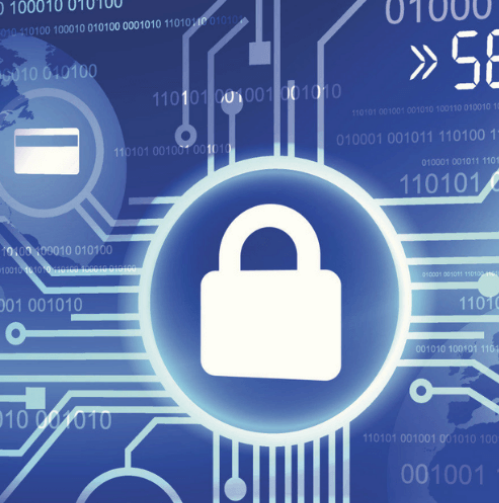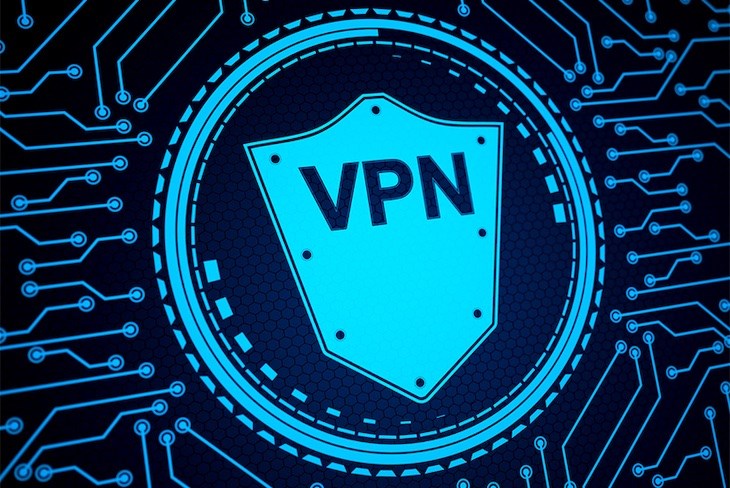When it comes to safeguarding your business’s data and communications, choosing the right VPN is a crucial step. This detailed guide highlights the essential factors to consider when selecting a VPN, along with the key benefits it offers for securing your business operations. Whether you’re looking to protect sensitive client information, ensure secure remote work, or maintain privacy across multiple devices, this guide provides expert recommendations to help you make the best decision for your business’s security needs.
Introduction:
In today’s digital world, businesses face more cyber threats than ever before. With an increasing number of employees working remotely and company data being stored online, it’s critical to have a secure way to protect sensitive information. One of the most effective solutions for safeguarding your business’s data is using a Virtual Private Network (VPN). But with so many VPN services available, how do you choose the right VPN for your business needs? In this guide, we will walk you through the key considerations, the benefits of using a VPN, and how to make the best decision for your company’s security.

What is a VPN and Why Does Your Business Need One?
A Virtual Private Network (VPN) is a tool that encrypts your internet connection and routes your online traffic through a secure server. It prevents hackers, cybercriminals, or even your Internet Service Provider (ISP) from monitoring your online activities. When considering how to choose the right VPN, it’s important to understand the core features that make a VPN essential for your business:
Data Security:
One of the primary functions of a VPN is to encrypt your data, ensuring that it remains private and secure no matter where you’re connecting from. This is particularly important when using public or unsecured networks, such as public Wi-Fi in coffee shops, airports, or hotels. These public networks are often vulnerable to cyber threats and attacks because they lack proper security measures, making it easier for hackers or malicious actors to intercept and steal your data.
When you connect to a VPN, it encrypts your internet traffic, creating a secure tunnel through which all your data travels. This encryption ensures that even if someone were to intercept your connection, they wouldn’t be able to read or access any of your sensitive information. Whether you’re transmitting customer data, business reports, or financial details, a VPN shields your communication from prying eyes, providing an essential layer of protection when using public or untrusted networks. This makes VPNs invaluable for anyone working remotely or on the go, as they guarantee that sensitive data remains secure, regardless of the network you’re using.
Secure Remote Access:
As the modern workplace evolves, remote work has become increasingly common, and businesses must ensure that employees working from various locations can still access the company’s internal network securely. A VPN plays a crucial role in providing secure remote access by creating an encrypted connection between the employee’s device and the company’s network. This allows employees to access files, databases, applications, and other resources as if they were physically present in the office.
Whether employees are working from home, a co-working space, or traveling abroad, a VPN ensures that their connection to the company’s internal systems remains secure. This is especially important for protecting confidential company information and maintaining the integrity of internal communications. Without a VPN, remote workers might unknowingly expose sensitive data to cybercriminals or malicious software, putting the entire organization at risk. By encrypting the connection, the VPN ensures that data transmitted between the employee’s device and the company’s servers remains confidential and secure, providing businesses with peace of mind that their information is safe, no matter where their employees are located.
Preventing Cyber Attacks:
Cyber attacks have become increasingly sophisticated, and businesses of all sizes are constantly at risk. One of the most common forms of attack is the Man-in-the-Middle (MitM) attack, where cybercriminals intercept and alter communication between two parties without their knowledge. Other threats include phishing attacks, where hackers attempt to steal sensitive data by masquerading as trustworthy entities, and Distributed Denial of Service (DDoS) attacks, where an overwhelming amount of traffic is directed at a website or service, causing it to crash and become unavailable.
A VPN provides a robust defense against these types of cyber threats. By encrypting data, the VPN ensures that even if an attacker intercepts the communication, they will not be able to access or alter the transmitted information. Additionally, VPNs use secure tunneling protocols that protect against MitM attacks by ensuring that data is sent through a secure and encrypted channel, making it impossible for third parties to manipulate the data without detection. By masking the IP address of the user, VPNs also make it more difficult for attackers to target specific devices or networks, adding an extra layer of protection against phishing and DDoS attacks.
In addition to these security features, many VPN providers offer advanced security options, such as automatic kill switches and DNS leak protection, to prevent data leaks and further protect against malicious activities. These built-in protections help businesses ensure that their online operations remain secure and resistant to cyber threats.
Bypassing Geo-Restrictions:
In today’s globalized business environment, many companies need to access region-specific content or services to remain competitive and efficient. Whether it’s accessing a certain international website, using geo-restricted software, or acquiring localized data for a global audience, the ability to bypass geo-restrictions is crucial for business operations.
A VPN provides a simple and effective solution by allowing businesses to connect to servers in different countries. This gives the appearance of being in that country, thus enabling access to content or services that may otherwise be restricted or blocked in your region. For example, if your business needs to access certain online resources, websites, or streaming services that are only available in specific countries, a VPN can help you bypass those geographic restrictions and access the content without limitations.
This feature is also beneficial for businesses that operate internationally and need to access localized content or provide services to clients in different regions. By allowing employees to securely connect to different servers around the world, a VPN ensures that they can access the necessary resources for their job, regardless of their physical location. It also helps businesses ensure that they are complying with local regulations and accessing the correct version of services and websites for their market.
By expanding on these points, it’s clear that a VPN isn’t just a tool for ensuring security; it’s an essential resource for businesses that need to protect sensitive data, provide secure access for remote workers, prevent cyber attacks, and easily access geo-restricted content.
Key Factors to Consider When Choosing the Right VPN
Selecting the right VPN is not a one-size-fits-all decision. There are several key factors to take into account before making your choice. Below are the essential elements to help you choose the right VPN for your business:
1. Encryption Protocols
One of the most essential elements when choosing the right VPN is the level of encryption it offers. Encryption is the process of converting data into an unreadable format that can only be deciphered with the correct key. It ensures that all data transmitted over the internet remains secure, even if intercepted by malicious actors. The higher the encryption standard, the more secure your data will be.
When selecting a VPN, look for providers that use AES-256 encryption. This encryption standard is recognized as the gold standard in the industry due to its robustness. AES-256 encryption is practically unbreakable and is commonly used by government agencies and financial institutions to protect sensitive data. By using this level of encryption, you can ensure that your business’s confidential information—such as client details, financial records, intellectual property, and communications—remains safe from hackers, cybercriminals, and any unauthorized entities trying to access your network. Choosing a VPN with AES-256 encryption is essential for businesses handling sensitive or classified data.
2. Server Locations
Another critical factor in choosing the right VPN is the availability of multiple server locations. A VPN with a broad network of servers allows your business to take full advantage of global connectivity and optimize various aspects of your operations. Here’s why server locations matter:
-
Bypassing Geo-Restrictions: Some content or services are restricted to certain countries or regions. A VPN with servers in diverse locations enables your business to bypass geo-blocks and access content, platforms, or websites that are only available in specific countries. This is especially useful for businesses that need to access international markets, regional data, or streaming services.
-
Optimizing Performance: Connecting to a server that’s geographically closer to your physical location can reduce latency and ensure faster internet speeds. This is particularly beneficial for businesses relying on cloud-based services, VoIP communication, or large file transfers, where a slow connection could disrupt operations. The closer the server, the less time it takes for data to travel, which translates into a better overall user experience.
-
Relevance to Business Needs: Depending on the nature of your business, some server locations may be more important than others. If you have clients in specific regions, having servers in those areas can enhance your VPN experience and help meet legal, compliance, or customer service needs. Make sure that the VPN provider you select has servers in locations that align with your business requirements.
3. Speed and Performance
While encryption is paramount to security, speed and performance are also critical factors to consider when choosing the right VPN. A VPN that slows down your internet connection can significantly impact your business operations. This is especially true for businesses that rely on cloud-based applications, video conferencing, file sharing, or large data transfers, where slow speeds can lead to frustration and inefficiency.
Look for a VPN that offers high-speed servers with low latency. A VPN provider that guarantees minimal speed loss is essential to maintain productivity and smooth operations for your team. When evaluating VPN options, consider how well the provider performs during peak usage times and whether it supports the high-speed connections necessary for real-time communication and collaborative work. Test speeds and read reviews to ensure that the service can handle your business’s needs without causing delays or interruptions.
4. Compatibility with Devices
In today’s digital world, your employees likely use a wide range of devices to complete their work—desktops, laptops, tablets, and smartphones. Therefore, when choosing the right VPN, it’s important to ensure the VPN service is compatible with all the devices your team uses. A VPN that works seamlessly across multiple platforms will provide consistent security, no matter what device your employees are using.
Check that the VPN provider offers apps for all major operating systems and platforms, including Windows, macOS, Android, iOS, and even Linux. This ensures that your team can stay connected and secure while working from any device, whether they’re in the office, working remotely, or traveling. Additionally, some businesses have diverse technology environments, so it’s essential that the VPN offers compatibility across different devices and internet-connected systems. Ensuring this cross-platform support guarantees flexibility and scalability for your organization.
5. No-Logs Policy
Privacy is a top priority for businesses, especially when handling sensitive data. Choosing the right VPN means selecting a provider that offers a strict no-logs policy. This policy ensures that the VPN provider does not keep any records of your online activity, such as browsing history, search queries, or connection data.
A no-logs policy is vital for ensuring your business’s confidentiality and safeguarding sensitive client information. Without logs, there is no data to hand over to authorities, hackers, or any other party that might try to access your business’s activity. It’s also an important feature for compliance with privacy regulations such as GDPR or CCPA, which require businesses to safeguard personal data.
When evaluating VPN services, make sure the provider explicitly states that they do not collect, store, or share any logs related to your online activity. Some VPN providers may claim to follow a no-logs policy but still retain data for a certain period or collect metadata. Always look for a VPN that has been independently audited to verify its compliance with the no-logs policy.
The Benefits of Using a VPN for Your Business
Here are the main advantages of incorporating a VPN into your business operations:
1. Enhanced Security for Remote Workers
With the growing trend of remote work, businesses need to ensure that their employees can securely access company resources, no matter where they are working. Whether they’re at home, in a coffee shop, at an airport, or traveling abroad, remote workers often use public or unsecured Wi-Fi networks, which are highly vulnerable to cyberattacks. A VPN provides an essential layer of protection by encrypting the internet connection and creating a secure tunnel between the employee’s device and the company network. This encryption ensures that sensitive data, such as confidential emails, financial transactions, or proprietary company information, is kept safe from potential hackers or unauthorized third parties trying to intercept it.
Additionally, a VPN allows businesses to maintain control over their internal systems, even with a geographically dispersed workforce. Secure remote access to internal servers, databases, and applications is vital for ensuring that employees can collaborate and do their work without compromising security. With a VPN in place, businesses can confidently support a remote workforce, knowing that all communications and data transfers are protected against external threats, providing peace of mind and allowing employees to work efficiently from anywhere in the world.
2. Improved Privacy and Anonymity
In today’s interconnected world, privacy is more important than ever. As businesses increasingly rely on digital communication and cloud-based services, ensuring that their employees’ online activities remain private is critical to maintaining a strong security posture. A VPN helps maintain anonymity by masking the real IP addresses of employees. By routing traffic through a secure server, the VPN assigns a new IP address to the user, making it difficult for third parties, including hackers, advertisers, and data harvesters, to track the employee’s online activities or pinpoint their physical location.
This added layer of privacy is particularly crucial when employees are accessing sensitive business data or using public networks. For example, in environments where employees are accessing critical information while traveling or working in public spaces, a VPN shields their activities from prying eyes. By ensuring that personal information and business activities remain anonymous and untraceable, businesses can protect their sensitive data from being exposed, intercepted, or exploited by malicious actors.
3. Reduced Risk of Data Breaches
Data breaches are a major concern for businesses of all sizes. Cybercriminals and malicious actors are constantly looking for ways to intercept and exploit sensitive information, especially when employees are working on unsecured networks. A VPN significantly reduces the chances of data breaches by ensuring that all communication between employees and company systems is fully encrypted.
When employees use a VPN, all data transmitted across the network is scrambled into an unreadable format, making it nearly impossible for attackers to intercept and decode it, even if they are able to gain access to the network. This is particularly important when employees are using public or unsecured Wi-Fi, which is often vulnerable to hacking attempts. By encrypting all communication, whether employees are accessing sensitive client data, financial information, or internal systems, a VPN helps to prevent unauthorized access and protect business data from being exposed to cybercriminals.
This level of encryption acts as a strong line of defense, minimizing the risk of data breaches, protecting both your company’s and your clients’ confidential information, and ensuring that your business complies with privacy regulations and data protection laws.
4. Cost-Effective Solution
When it comes to securing your business’s digital infrastructure, the cost of implementing a security solution is always a factor to consider. While enterprise-level security tools, such as firewalls or dedicated security services, can be expensive, a VPN provides a cost-effective alternative without compromising on protection. VPNs are relatively inexpensive to set up and maintain, especially when compared to more complex and expensive security solutions.
Moreover, a VPN is scalable, meaning that as your business grows, you can easily add more users or servers to meet your expanding needs. Whether you’re a small startup or a large corporation, a VPN can grow with your company, adapting to increased demand without the need for a complete overhaul of your existing infrastructure. Additionally, many VPN providers offer flexible pricing models, allowing businesses to choose the plan that best fits their needs and budget.
Given the level of protection a VPN offers — from securing remote workers to preventing data breaches and ensuring privacy — it’s one of the most affordable ways to enhance your business’s cybersecurity measures. Investing in a VPN is a proactive step towards future-proofing your business by providing a reliable, scalable solution that can evolve as your business and security needs change, all at a fraction of the cost of other high-end security services.
How to Choose the Right VPN Provider for Your Business
Choosing the Right VPN: NordVPN Teams, ExpressVPN, and CyberGhost
When it comes to choosing the right VPN for your business, selecting the appropriate provider is essential to ensure optimal security, performance, and ease of use. Let’s explore three top VPN solutions—NordVPN Teams, ExpressVPN, and CyberGhost—to help you determine which one best fits your business’s needs.
NordVPN Teams
NordVPN Teams is a top choice for businesses seeking a VPN solution that combines security, reliability, and user-friendly features. Known for its exceptional security measures, NordVPN Teams uses AES-256 military-grade encryption, a standard that guarantees your business’s sensitive data—such as client information, financial records, and proprietary strategies—remains safe from hackers and cybercriminals. This encryption is the industry benchmark, ensuring that your company’s data is always protected.
One standout feature of NordVPN Teams is its dedicated servers designed for businesses. These servers provide tailored solutions to meet the unique needs of corporate environments, whether you’re securing remote connections for employees or accessing sensitive data. The VPN service supports multiple global server locations, offering businesses seamless access to data from around the world, while ensuring performance remains optimal.
Additionally, NordVPN Teams offers 24/7 customer support, so your business always has access to assistance when needed. The centralized control panel allows administrators to manage multiple accounts, configure settings, and ensure that every employee is securely connected. This combination of customizable features and reliability makes NordVPN Teams an excellent choice for businesses of all sizes.
ExpressVPN
For businesses that need both high-speed connections and robust security, ExpressVPN is an outstanding option. Known for its lightning-fast speeds, ExpressVPN ensures that your team can work efficiently without the lag or slowdowns that often come with slower networks. This is especially beneficial for businesses that rely on cloud-based applications, video conferencing, or large data transfers.
Like NordVPN Teams, ExpressVPN also uses AES-256 encryption to keep your business communications and data transfers secure. Whether employees are accessing sensitive files remotely or conducting business transactions, this level of encryption provides peace of mind that your data is well-protected.
ExpressVPN stands out for its vast network of servers, located in 94 countries. This expansive coverage allows businesses to access fast, secure servers in a variety of regions, making it ideal for international companies or those needing region-specific content or services. ExpressVPN also ensures that your team stays connected and secure across devices, from desktops to tablets and mobile devices, making it incredibly user-friendly.
With its global server locations, high-performance speeds, and reliable customer support, ExpressVPN is a top-tier choice for businesses that prioritize both security and efficiency.
CyberGhost
For small businesses or companies with limited IT resources, CyberGhost offers a user-friendly and secure VPN solution. Its simple interface allows employees with varying technical skills to easily connect and stay protected. This makes it a great option for businesses that need an easy-to-use VPN without compromising security.
CyberGhost utilizes AES-256 encryption, ensuring that your business communications and data transfers are always securely protected. Additionally, its strict no-logs policy ensures that your business’s activities remain private, without tracking or monitoring by the VPN provider.
A standout feature of CyberGhost is its privacy-enhancing tools, such as anti-tracking and ad-blocking, which provide an extra layer of protection. These features help prevent unwanted ads and protect against malicious tracking scripts, keeping your online activity private. This makes CyberGhost particularly valuable for small businesses handling sensitive client data or those concerned about privacy breaches.
With 24/7 customer support and a simple, no-fuss interface, CyberGhost is an excellent choice for businesses that need reliable encryption and privacy features without the complexity of more advanced solutions.
Conclusion:
Choosing the right VPN for your business is crucial for ensuring the security and privacy of your sensitive data. Whether you are dealing with client information, financial records, or proprietary business strategies, a VPN can help protect this data and ensure that all communications remain secure.
When choosing the right VPN, remember to consider important features such as encryption, server locations, speed, and the VPN provider’s no-logs policy. Make sure to choose a VPN service that aligns with your business needs and provides the highest level of security and performance.
By implementing a reliable VPN, your business can confidently secure its data and communications, ensuring a safe and efficient working environment for your team.

